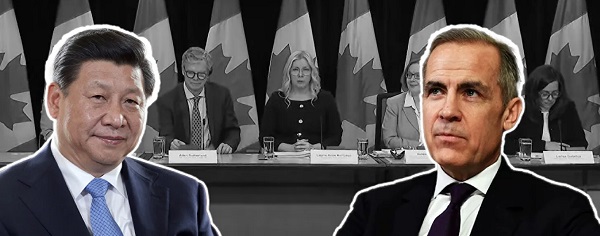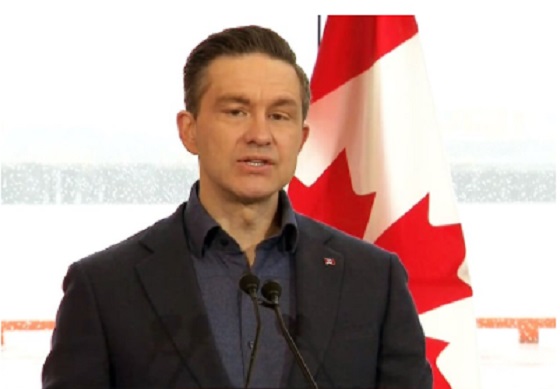Uncategorized
Mosque massacre suspect to face 89 charges in court Friday

WELLINGTON, New Zealand — The man accused of carrying out the Christchurch mosque attacks will face 50 murder charges and 39 attempted murder charges when he makes his second court appearance, New Zealand police said Thursday.
Police had earlier filed a single, representative murder charge against 28-year-old Australian Brenton Harrison Tarrant. He is due to appear via video link during a brief hearing on Friday, and won’t be required to enter a plea.
Fifty people died in the March 15 attacks on two mosques and another 50 were injured.
Police said in a brief statement that they were considering filing more charges against Tarrant but couldn’t comment further as the case was before the court.
Tarrant’s first appearance was on the day after the attacks in the Christchurch District Court. His case has now been moved to the High Court due to the seriousness of the charges. Tarrant has reportedly been moved to a high-security prison in Auckland, which is why he’ll appear via video link.
During the scheduled court hearing, media photographs won’t be allowed and reporting on the proceedings will be severely restricted under New Zealand law. The intent of the law is to avoid the possibility the reporting and images would taint the views of potential jurors before they hear evidence in court.
Judge Cameron Mander said in a note that the brief hearing will mainly be about the accused gunman’s legal representation.
Tarrant earlier dismissed lawyer Richard Peters, who was assigned to represent him during his district court appearance. Peters said Tarrant told him that he wants to represent himself. Many worry that Tarrant will try to use his trial as a soapbox to push his white supremacist views.
The judge said he had received applications from 25 media organizations to take film, photographs or audio recordings of Friday’s hearing but had denied all of them. He said reporters could remain throughout and take notes, although would be restricted in what they could report.
He said media could still use pixelated images of Tarrant which the district court judge had allowed. The pixilation obscured his face.
Retired law professor Bill Hodge said the idea behind obscuring his image was that the prosecution might need a witness to be sure he saw the gunman at the mosque rather than recognizing him from media stories.
Hodge said New Zealand and Australia were trying to preserve the ancient common-law approach to a fair trial, but that it seemed quaint in an era where people could easily find more information or images on the internet.
New Zealand’s Department of Corrections said in an email they wouldn’t answer questions such as where Tarrant was being held due to operational security reasons. They said that despite some restrictions, he was being managed in accordance with New Zealand and international laws regarding the treatment of prisoners.
“At this time, he has no access to television, radio or newspapers and no approved visitors,” the department said.
Nick Perry, The Associated Press
Uncategorized
Poilievre on 2025 Election Interference – Carney sill hasn’t fired Liberal MP in Chinese election interference scandal

From Conservative Party Communications
“Yes. He must be disqualified. I find it incredible that Mark Carney would allow someone to run for his party that called for a Canadian citizen to be handed over to a foreign government on a bounty, a foreign government that would almost certainly execute that Canadian citizen.
“Think about that for a second. We have a Liberal MP saying that a Canadian citizen should be handed over to a foreign dictatorship to get a bounty so that that citizen could be murdered. And Mark Carney says he should stay on as a candidate. What does that say about whether Mark Carney would protect Canadians?
“Mark Carney is deeply conflicted. Just in November, he went to Beijing and secured a quarter-billion-dollar loan for his company from a state-owned Chinese bank. He’s deeply compromised, and he will never stand up for Canada against any foreign regime. It is another reason why Mr. Carney must show us all his assets, all the money he owes, all the money that his companies owe to foreign hostile regimes. And this story might not be entirely the story of the bounty, and a Liberal MP calling for a Canadian to be handed over for execution to a foreign government might not be something that the everyday Canadian can relate to because it’s so outrageous. But I ask you this, if Mark Carney would allow his Liberal MP to make a comment like this, when would he ever protect Canada or Canadians against foreign hostility?
“He has never put Canada first, and that’s why we cannot have a fourth Liberal term. After the Lost Liberal Decade, our country is a playground for foreign interference. Our economy is weaker than ever before. Our people more divided. We need a change to put Canada first with a new government that will stand up for the security and economy of our citizens and take back control of our destiny. Let’s bring it home.”
Uncategorized
Canada Needs A Real Plan To Compete Globally

From the Frontier Centre for Public Policy
Ottawa’s ideological policies have left Canada vulnerable. Strategic action is needed now
As Canada navigates an increasingly complex geopolitical landscape, the next federal government must move beyond reflexive anti—Americanism regardless of its political leanings. Instead, Canada should prioritize national interests while avoiding unnecessary conflict and subservience.
The notion that Canada can stand alone is as misguided as the idea that it is only an economic appendage of the United States. Both perspectives have influenced policy in Ottawa at different times, leading to mistakes.
Rather than engaging in futile name-calling or trade disputes, Canada must take strategic steps to reinforce its autonomy. This approach requires a pragmatic view rooted in Realpolitik—recognizing global realities, mitigating risks, governing for the whole country, and seizing opportunities while abandoning failed ideologies.
However, if Washington continues to pursue protectionist measures, Canada must find effective ways to counteract the weakened position Ottawa has placed the country in over the past decade.
One key strategy is diversifying trade relationships, notably by expanding economic ties with emerging markets such as India and Southeast Asia. This will require repairing Canada’s strained relationship with India and regaining political respect in China.
Unlike past Liberal trade missions, which often prioritized ideological talking points over substance, Canada must negotiate deals that protect domestic industries rather than turning summits into platforms for moral posturing.
A more effective approach would be strengthening partnerships with countries that value Canadian resources instead of vilifying them under misguided environmental policies. Expand LNG exports to Europe and Asia and leverage Canada’s critical minerals sector to establish reciprocal supply chains with non-Western economies, reducing economic reliance on the U.S.
Decades of complacency have left Canada vulnerable to American influence over its resource sector. Foreign-funded environmental groups have weakened domestic energy production, handing U.S. industries a strategic advantage. Ottawa must counter this by ensuring Canadian energy is developed at home rather than allowing suppressed domestic production to benefit foreign competitors.
Likewise, a robust industrial policy—prioritizing mining, manufacturing, and agricultural resilience—could reduce dependence on U.S. and Chinese imports. This does not mean adopting European-style subsidies but rather eliminating excessive regulations that make Canadian businesses uncompetitive, including costly domestic carbon tariffs.
Another key vulnerability is Canada’s growing military dependence on the U.S. through NORAD and NATO. While alliances are essential, decades of underfunding and neglect have turned the Canadian Armed Forces into little more than a symbolic force. Canada must learn self-reliance and commit to serious investment in defence.
Increasing defence spending—not to meet NATO targets but to build deterrence—is essential. Ottawa must reform its outdated procurement processes and develop a domestic defence manufacturing base, reducing reliance on foreign arms deals.
Canada’s vast Arctic is also at risk. Without continued investment in northern sovereignty, Ottawa may find itself locked out of its own backyard by more assertive global powers.
For too long, Canada has relied on an economic model that prioritizes federal redistribution over wealth creation and productivity. A competitive tax regime—one that attracts investment instead of punishing success—is essential.
A capital gains tax hike might satisfy activists in Toronto, but it does little to attract investments and encourage economic growth. Likewise, Ottawa must abandon ideological green policies that threaten agri-food production, whether by overregulating farmers or ranchers. At the same time, it must address inefficiencies in supply management once and for all. Canada must be able to feed a growing world without unnecessary bureaucratic obstacles.
Ottawa must also create an environment where businesses can innovate and grow without excessive regulatory burdens. This includes eliminating interprovincial trade barriers that stifle commerce.
Similarly, Canada’s tech sector, long hindered by predatory regulations, should be freed from excessive government interference. Instead of suffocating innovation with compliance mandates, Ottawa should focus on deregulation while implementing stronger security measures for foreign tech firms operating in Canada.
Perhaps Ottawa’s greatest mistake is its knee-jerk reactions to American policies, made without a coherent long-term strategy. Performative trade disputes with Washington and symbolic grandstanding in multilateral organizations do little to advance Canada’s interests.
Instead of reacting emotionally, Canada must take proactive steps to secure its economic, resource, and defence future. That is the role of a responsible government.
History’s best strategists understood that one should never fight an opponent’s war but instead dictate the terms of engagement. Canada’s future does not depend on reacting to Washington’s policies—these are calculated strategies, not whims. Instead, Canada’s success will be determined by its ability to act in the interests of citizens in all regions of the country, and seeing the world as it is rather than how ideological narratives wish it to be.
Marco Navarro-Génie is the vice president of research at the Frontier Centre for Public Policy. With Barry Cooper, he is co-author of Canada’s COVID: The Story of a Pandemic Moral Panic (2023).
-

 2025 Federal Election2 days ago
2025 Federal Election2 days agoElection Security Briefing Confirms CCP-Linked Operation Boosted Carney
-

 conflict1 day ago
conflict1 day agoZelensky Alleges Chinese Nationals Fighting for Russia, Calls for Global Response
-

 2025 Federal Election1 day ago
2025 Federal Election1 day agoHarper Endorses Poilievre at Historic Edmonton Rally: “This Crisis Was Made in Canada”
-

 Bruce Dowbiggin2 days ago
Bruce Dowbiggin2 days agoBettman Gives Rogers Keys To The Empire. Nothing Will Change
-

 2025 Federal Election2 days ago
2025 Federal Election2 days agoPoilievre Will Bring in ‘One and Done’ Resource Approvals, and Ten Specific Projects Including LNG Canada Phase II
-

 2025 Federal Election1 day ago
2025 Federal Election1 day agoAn In-Depth Campaign Trail “Interview” With Pierre Poilievre
-

 Alberta18 hours ago
Alberta18 hours agoAlberta’s embrace of activity-based funding is great news for patients
-

 John Stossel17 hours ago
John Stossel17 hours agoGovernment Gambling Hypocrisy: Bad Odds and No Competition









